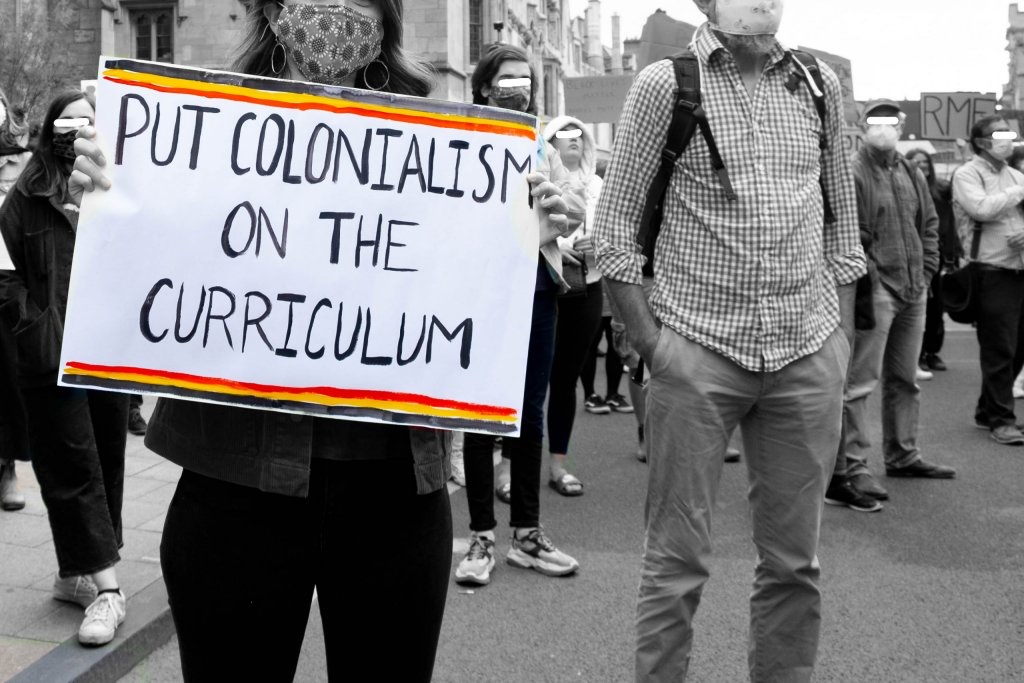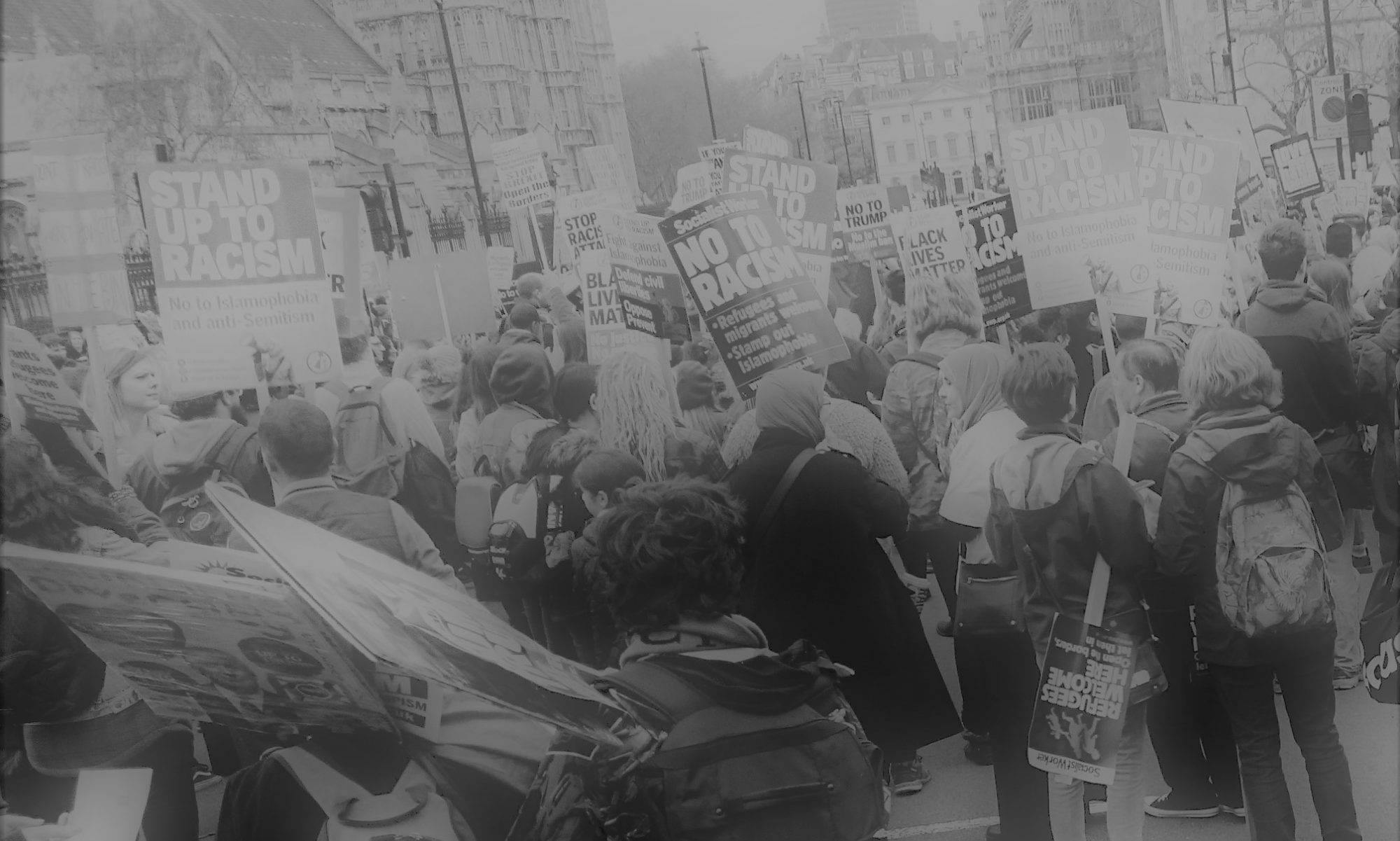By Ren Hydes-Kelly (she/her)
TW: Police brutality, murder
As the Equality, Diversity and Inclusion student representative for the School of Modern Languages (SML) in 2022-23, I am using this blog post to recount the work both I and SML have been doing on decolonising the curriculum, including the genesis of this blog series.
Back in 2020, added to a list of rather bleak events that the world was facing, including Donald Trump’s impeachment, Brexit trade talks, and the outbreak of the COVID-19 pandemic, was the murder of George Floyd. On the night of 25 May 2020, George Perry Floyd Jr. was held under the knee of Derek Chauvin for 9 minutes and 29 seconds until he died. This unjust and brutal murder caused many people to join the Black Lives Matter movement in the US and beyond to protest against police brutality, racial profiling, and lack of police accountability. These protests were the largest in the United States’ history, even larger than during the Civil Rights era, with an estimated 26 million people participating[1].
During the pandemic, I and other SML students took part in said protests and educated ourselves about race relations on both sides of the Atlantic. Although race has been something we talked about in our lectures in SML, I found myself searching for materials that would allow me to further explore the topics of decolonisation and race relations between Spain, Portugal, and Latin America – my own areas of study.

I brought this up with some fellow students, and two weeks after the murder of George Floyd, we decided to write the following open letter to SML staff:
Dear SML Staff,
This letter is sent to you on behalf of SML students from courses RT47 [BA Spanish, Portuguese, and Latin American Studies] and Y001 [BA Combined Honours] regarding the recent communication from the university on the subject of Black Lives Matter.
For students of Latin American Studies, the issue of colonisation is not something we are unfamiliar with; however, for students of other languages, for example, French, it has been requested that more information be provided about the history of colonial relations for that country. Even those who are enrolled on RT47 are eager to further study contemporary race relations that have not been discussed in class.
We would very much appreciate it if you and the SML would be able to compile a list of resources (books, articles, web pages etc.) that discuss in depth race relations and issues, particularly regarding African diasporas in your countries of expertise, and also about UK colonialism if possible.
The email from the Vice Chancellor mentioned that the School of English Language, Literature and Linguistics has “shared resources on issues of white privilege, anti-racism and the history of protest and activism” and we feel it would be really beneficial if you were able to provide something similar to all SML students as well.
We understand that colonialism and race is not taught as frequently outside of the Schools of Modern Languages and Humanities, but we would still like to further educate ourselves to learn more about the impact race has, not only on our lives, but in our studies as well.
Best regards,
SML Students
We were ecstatic with the positive responses we received from the SML staff, including the numerous resources from all language areas of SML recommended to us. Dr Sarah Leahy first brought up the idea of turning these resources into a collaborative database between staff and students, a project that has been on development for the past year. Another immediate response was the creation of this blog, Decolonising Modern Languages and Cultures, by Dr Catherine Gilbert and Dr Michael Tsang.
Dr Giuliana Borea and Dr Leahy have been especially proactive, and managed to secure a grant from the Black History Month fund which is a continuation of the recommendations of SML staff. This fund also allows students to get involved with paid collaborative work to build the online database of resources in tandem with the SML staff.
I cannot commend and thank the SML staff, library collaborators, and everyone who has shown an interest in EDI matters enough, as without their support we would not have been able to get this project off the ground and spark such an interesting dialogue.
If any student or parties, both in Newcastle and beyond, would like to get involved in the project, please send an email to myself or to Dr Borea at : l.hydes-kelly@newcastle.ac.uk / giuliana.borea@newcastle.ac.uk.
[Ren is a Stage 4 student of RT47 BA Spanish, Portuguese, and Latin American Studies. As well as being the Student Representative for Equality, Diversity and Inclusion in SML, she is also the SML Student Decolonising Lead. She centres most of her studies on race relations in Latin America, Indigenous language rights, and colonial history.]
[1] Shvili, J. (2021), ’10 Largest Protests in the History of America’, World Atlas.
